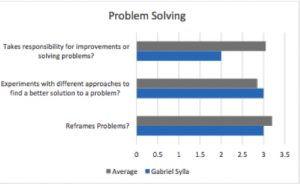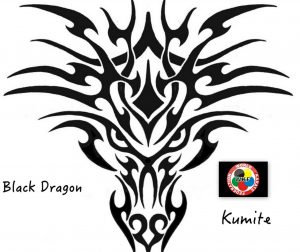
In my last blog about the subject i put up the picture above, showing where i stood in this NCCP competency compared to my peers at the beginning of our program and the area where i was the most behind the class average was : “takes responsibility for improvements or problem solving.”
I took it upon myself to improve in this area to become a better coach, during my studies at UBC i came to realize that in my coaching career i was always behind someone who took all the big responsabilities and a person who had all the pressure. I was always the”assistant” , always in a supporting role! I was hesitant to put up my own ideas upfront for improving the athletes.
Early in my career my assumption was: the head coach makes all the final decisions, that is his role, he should know all the answers, he should delegate tasks and break things down, not delegate responsibilities or keep us (assistants) accountable.
“Leaders venture out none of the individuals in our study sat idly by waiting for faith to smile upon them”
“Those who led others to greatness seek and accept challenges”
When i graduated from the Canadian Sport Institute in Montreal, i started to have a different mindset, and started to evolve as a coach and a leader. The UBC program inspired me to take on more responsibilities to improve athletes, i decided 6 months ago to step outside my comfort zone and open my own dojo to create a competition team. I could not hide behind anybody, this was my project.

Since we became an Olympic sport more and more traditional karate athletes are making the transition to “sport karate”, once i declared that i wanted to start my own competition team, the word got around and i started to have athletes wanting to make the transition come to me. I did not solicitate anyone because that causes problems with other teachers and coaches. Most of them keep a traditional base with their original “dojos” and come to me for sport karate.
I immediately started a problem solving culture and a continuous improvement culture, getting athletes, to think for themselves. In my problem solving quest in training, i started to explore more deliberate practice and I also made them understand that fighting is a constant problem solving game and that led me to add cognitive dimension to my coaching. Instead of telling them what to do all the time, i put them in situations that make them understand The “why” and let them figure out the “how” and i wanted to have them concentrate more in practice. I started to design challenging practices to improve performance.
Despite repetition, most people fail to become experts at what they do. It doesn’t matter how many years they spend they stop getting better. Experience does not equate to expertise.( Atul Gawande 2002)
i had an athlete who had trouble creating openings to score, so i filmed him and reviewed the film with him and asked him why he had trouble scoring. He figured out by himself that he wasn’t creating any deterrences or faints, he was coming in too directly and his intentions were too obvious to his opponent. He had a big smile on his face, and the next practice i told him to choose 3 different attack technics and he had to find tree different ways to score for each attacks. It took a while but he found by himself 9 effective strategies. The next steps was, the testing, so i had him spare in practice without telling his teammate what i was looking for, and he passed the test.
By viewing expert per- formers not simply as domain-specific experts but as experts in maintaining high levels of practice and improving perfor- mance, we are likely to uncover valuable information about the optimal conditions for learning and education. (K. Anders Ericsson 1993)
A few weeks later we had a minor competition, a perfect setting to put him to the test, and he finished 2 nd and scored a lot of points in his matches. I learned a lot as a coach in this experience and improved his offensive repertoire dramatically!
References
K. Anders Ericsson, Ralf Th. Krampe, and Clemens Tesch-Romer (1993) The Role of Deliberate Practice in the Acquisition of Expert Performance
JM. Kouze and BS.Posner (2006) leadership challenge
Farnam Street News letter Susan Cain (2002)What is Deliberate Practice?
Hello Gabe
Thanks for the blog post. It is fun checking out everyone’s status throughout this process. It is awesome that you notice your coaching improvements and that you are able you keep evolving as a coach. Congratulations on the new Team! I wish you the best with your new adventure.
Cheers,
Jesse
Thank you Jesse, i’m excited about this new challenge and so for so good, i ‘m learning a lot in this program, so i feel confident for the future!
Thanks for the visit! I appreciate it!
cheers
Gabriel, great example on working through a strategy to help the athlete discover solutions. It is always nice to these types of reinforcement in coaching, where there is a clear benefit to the type of coaching strategies that we use. It would be great if these learning epiphanies happened more often.
I found you comments on creating your dojo interesting. I wondered how you overcame the traditional mindset of typical Karate and whether you did attract athlete from other clubs / dojos. If athletes did come to you, what happened to the relationship with the other coach? Have you been able to manage the relationships with other coaches by demonstrating a need for HP training?
Thank you Dave
Transitioning from the traditional aspect of karate to the WKF style was a natural progression, it started when i was a retiring athlete, i was doing traditional style competitions for the longest time, and kept winning all the tournaments i went in and got boarded. I was always the athletic type, and back than i was doing my own strength and conditioning programs and training on my own to improve my fihgting, because the idea bak than was that the weight room and the karate didn’t mesh. I needed more so i got my certifications in strength and conditioning and started to train myself like an athlete i was 37. Than i started to sneak into WKF tournaments in Quebec with a friend, and what i saw blew my mind. My friend challenged me to enter one of them and the rest is history, i made the Quebec team and made the final at -75kg the following year at age 38 my fighting career at that age was supposed to be over but i persevered and had success until age 40. Than i got into coaching as opposed to being an instructor. I have tremendous amount of respect for karate instructors but i knew this wasn’t for me, i knew my path was coaching!
As for my relationship with other instructors, as far as i ‘m concern i have no problem with them, my conscience is clear, because i made it clear that i wasn’t soliciting, i didn’t twist any arms, the athletes that came to me came out of their own will and had the same desire i had when i made the transition as an athlete. Some of them( instructors) treat me the same way, even though they didn’t like loosing a student, some don’t talk to me anymore, and some don’t care. So i’m only focusing on what i can control…
Karate is the only sport where an athlete is expected to be with the same instructor from his peewee years until the end of his national team career . For me it makes no sense, Roger Federer didn’t same coach when he was 6 and now. Athletes evolve and need more than you can offer them at one point of their developpement and you have to have the humility and the wisdom to let them grow else where. I have no problem with my athletes coming to me one day to let me know they need to go train in Europe for instance because that’s where some of the best athletes and coaches are at the moment!
We need to make a clear distinction between the sport and the art and let the students decide what they want to do, and help them in their development. Athletic careers are relatively short, that window of opportunity is small, so we should help them prosper They can always comeback after their career is over, because karate is for life not high performance elite competition.
Gabriel, taekwondo has the same issues. The sparring side of the sport does not make much money, whereas the martial arts side does. I have often wondered whether an athlete could retain their alignment to a particular club/school for martial arts, but go to a different program for sparring.
i think that is the key to success for a club, you have to develop both sides, having elite athletes is prestigious and brings attention and most people, kids will like to just practice the martial art.àSo both sides can feed each other
Every one can have their goals and coexist
has far as i’m concerned i’m focusing on the competition side, but in September, i will start the martial art school. That is the plan.
Hi Gab,
I must say the first impression you give when you step up to speak is that of a person who is to be respected. So please do continue to step up and out of your comfort zone. It is a gift to those around you.
Reading this blog post and all the great talk of problem solving and expertise made me reflect on the phrase ‘finding mastery’. Mastery is some thing that is never found but must constantly be sought. The act of ‘seeking mastery’ is the act of building excellence. Excellence has no ceiling. No matter how long you have sought mastery and how many skills and qualities you have perfected there is more. Challenging those who you work with and yourself to find the right questions, approaches and solutions is the constant struggle we must embrace.
If a coach and a leader is an agent of change then becoming the creative and expert problem solver is the game we must convince those around us to join. Together the coach and athlete make a great team in the game.
Thanks for the post.
Mike
Thank you Mike you are a wise man! This program is
designed for us to be confortable at being uncomfortable so we can transmit this to our athletes and staff members! I love exchanging with other coaches, i wish more of them would read my blog like you so i could get feedback and learn from them.
I will visit yours soon and give you some feedback.
I’m recommending to you the book Effortless Mastery by Kenny Weemer, i’m sure you will love it
Cheers
Gabe, love the quote by Atul Gawande! I’ve read a few of his books and loved his insights and would highly recommend them too.
Great example of problem solving and I commend you for the task of opening your own dojo! People have asked me if I would open up my own badminton club and I always said no, but I respect those who take that initiate and have that entrepreneurial mindset! I do respect business people and I believe that entrepreneurs generally are problem solvers who create business opportunities out of problems!
I really liked your example working with the athlete, and I definitely wish you long term success! Although you may have scored lower than the average in the NCCP Competency, I really think you’re just being too humble because you’re definitely taking charge out there! All the best Gabe!